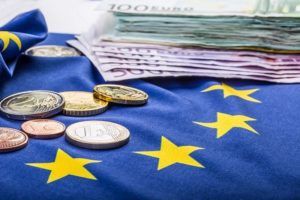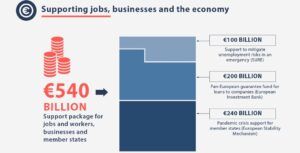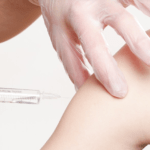NEXT MEETINGS
25 May, European Economic Area Council
11 June, Eurogroup
The Economy and Finance Ministers are meeting on 19 May to exchange views on the progress made with regard to the EU’s response measures to the COVID-19 crisis.
ECOFIN
At this meeting the ministers addressed:
News on COVID-19 measures
- Update on COVID-19 measures
- Regulation on Temporary Support to Mitigate the Risks of Unemployment in an Emergency (SURE)
- Implementation of the business safety net through the European Investment Bank’s Pan-European Guarantee Fund.
- Assessment of the economic and financial situation by ECB
Anti-Money Laundering (LBC)
To further strengthen the EU’s fight against money laundering and the financing of terrorism, ministers held a debate on the subject.
On 7 May, the Commission presented:
- an Action Plan for a comprehensive EU policy on the prevention of money laundering and terrorist financing,
- a revised methodology for the listing of high risk third countries with strategic weaknesses in their anti-money laundering regimes.
Ministers discussed how to further improve the existing AML framework, in particular:
-
- how to best achieve a harmonised set of rules and which areas and sectors would merit being covered by a regulation;
- how to make better use of data, data analysis and data sharing;
- the possibility of setting up a new dedicated EU authority for AML and its possible competences;
- the revised methodology proposed by the Commission for the identification of high-risk third countries.
European Semester 2020
Ministers welcomed the adoption of Council conclusions on the European Semester 2020 country reports and the implementation of the 2019 country-specific recommendations. These conclusions are part of the annual process of assessing macroeconomic imbalances procedures. However, this year, they reflect the exceptional situation linked to the severe deterioration of the economic situation resulting from the COVID-19 pandemic.
The conclusions focus on structural challenges and vulnerabilities that remain relevant in today’s changing and uncertain economic environment, and which could prove relevant for a recovery strategy.
Economic dialogue with Western Balkans and Turkey
In the margins of the video conference of economic and finance ministers, the EU, the Western Balkans and Turkey held their annual economic policy dialogue. This year’s discussion focused on the economic impact of the COVID-19 pandemic on the region.
Measures taken
The Council today adopted SURE, a temporary scheme which can provide up to €100 billion of loans under favourable terms to member states. The instrument enables member states to request EU financial support to help finance the sudden and severe increases of national public expenditure, as from 1 February 2020, related to national short-time work schemes and similar measures, including for self-employed persons, or to some health-related measures, in particular at the work place in response to the crisis.
SURE is one of the three safety nets, worth €540 billion, for jobs and workers, businesses and member states, contained in the Eurogroup report agreed on 9 April 2020. EU leaders endorsed the report on 23 April and called for the package to be operational by 1 June 2020. The total amount of guarantees will be €25 billion.
The instrument will then be operational until 31 December 2022.
Eurogroup
On 15th May 2020 the Chair of the European Parliament’s Economic and Monetary Affairs Committee (ECON) Irene Tinagli met President Mário Centeno to discuss the economic outlook for the euro area in the context of the COVID-19 crisis.
The Eurogroup also reviewed progress on economic safety nets agreed at the Eurogroup video conference on 9 April and endorsed by European Council members. Ministers also held a strategic discussion on priorities for the EU’s economic recovery.
The Eurogroup had already agreed on some key features of the recovery fund, concluding that it should be temporary, targeted and proportionate to the extraordinary costs of this crisis. It should help spread the costs over time and ensure solidarity with the Member States most affected.
The European Commission informed ministers of the second amendment adopted on 8 May 2020 to extend the scope of the temporary framework for state aid. The temporary framework was adopted on 19 March 2020 to help Member States support the economy in the context of the COVID-19 pandemic.
Living and working with the Covid-19
On 6th May Eurofound published a report on the results of the survey undertaken with regard to the quality of life and working conditions of Europeans during the Covid-19. The aim of the survey is to investigate the impact on well-being, work and teleworking and on the financial situation of people living in Europe. It includes a series of questions relevant to people in various age groups and life situations. Most of the questions are based on Eurofound’s European Quality of Life Survey (EQLS) and European Working Conditions Survey (EWCS), while other questions are new or have been adapted from other sources, such as the European Union Statistics on Income and Living Conditions (EU-SILC).
Previous meetings
16 April 2020
Economic impact of the crisis caused by COVID-19 and policy response
Ministers called for the rapid implementation of emergency measures, in line with the principles agreed by the Eurogroup. In particular, the Croatian Presidency committed itself to rapidly follow up the negotiations on the Commission’s proposal for a temporary instrument to mitigate the risk of unemployment in the event of an emergency (SURE).
Bank loans to households and businesses
Ministers adopted a declaration calling for the flexible application of EU rules for the banking sector and urging banks to refrain from distributing dividends.
European Semester
Ministers agreed to simplify the reporting requirements for this year’s European Semester cycle.
International spring meetings
The Croatian Presidency and the Commission informed ministers about the international spring meetings, in particular the meetings of the G7 and G20 finance ministers and the International Monetary and Financial Committee, which were held by videoconference the week of 13 April 2020.
23 March 2020
COVID-19: flexibility of the Stability and Growth Pact
The finance ministers issued a Statement of EU ministers of finance on the Stability and Growth Pact in the light of the VIC crisis-19
Economic impact of the COVID-19 crisis
The European Commission presented an assessment of the situation and its recent measures, such as the Coronavirus Response Investment Initiative or its Temporary Framework for State Aid measures. The European Central Bank presented its Emergency Purchase Programme in the face of the pandemic announced on 18th March.
European Semester 2020
Ministers and the Commission agreed to take a flexible and pragmatic approach in implementing the next stages of this year’s European Semester exercise.
More information
Remarks by Executive Vice-President Dombrovskis at the ECOFIN press conference
Council adopts temporary support to mitigate unemployment risks in an emergency: SURE
Videoconference ECOFIN, 19 May 2020
Videoconference Consilium, 26.3.2020








Leave a Reply